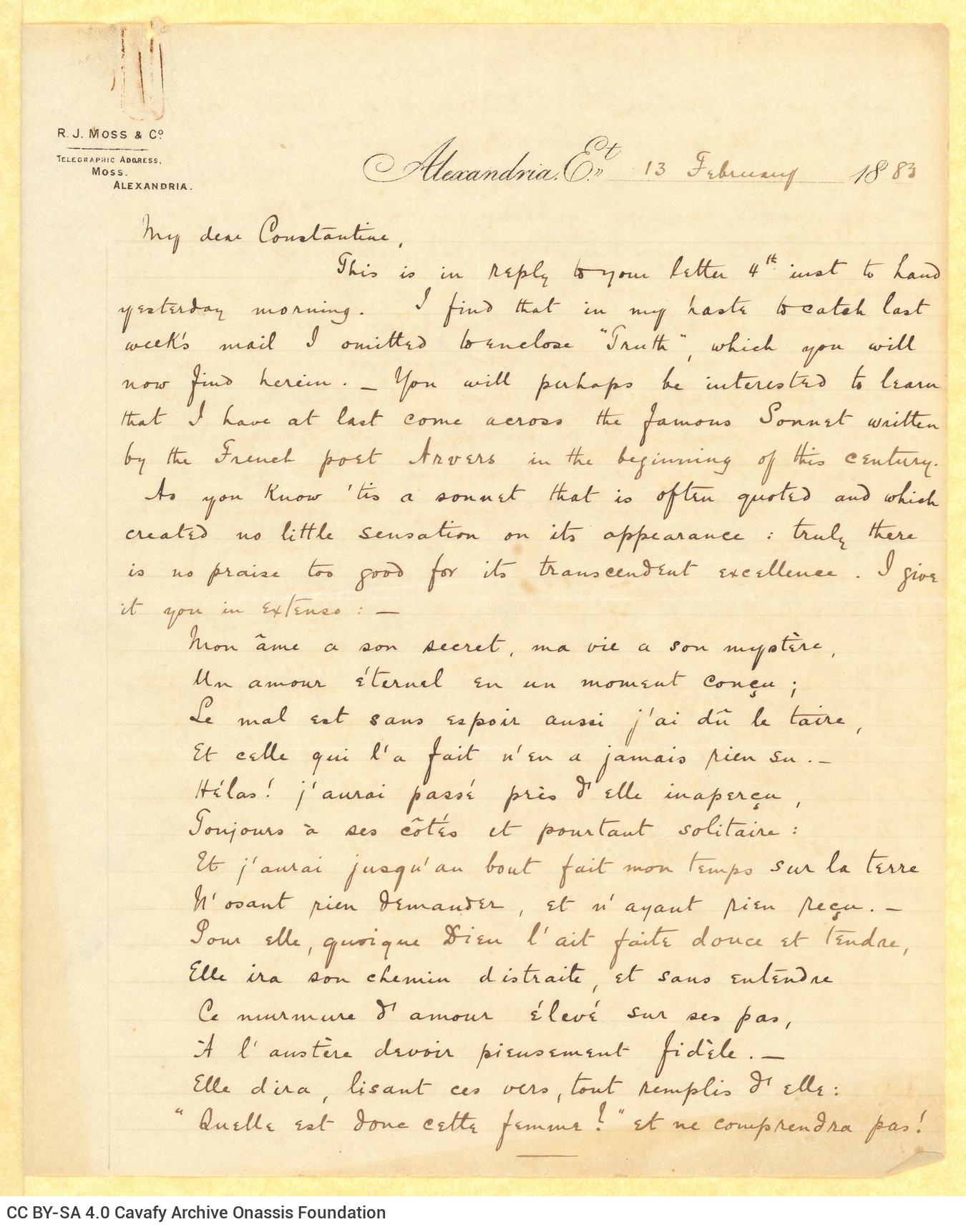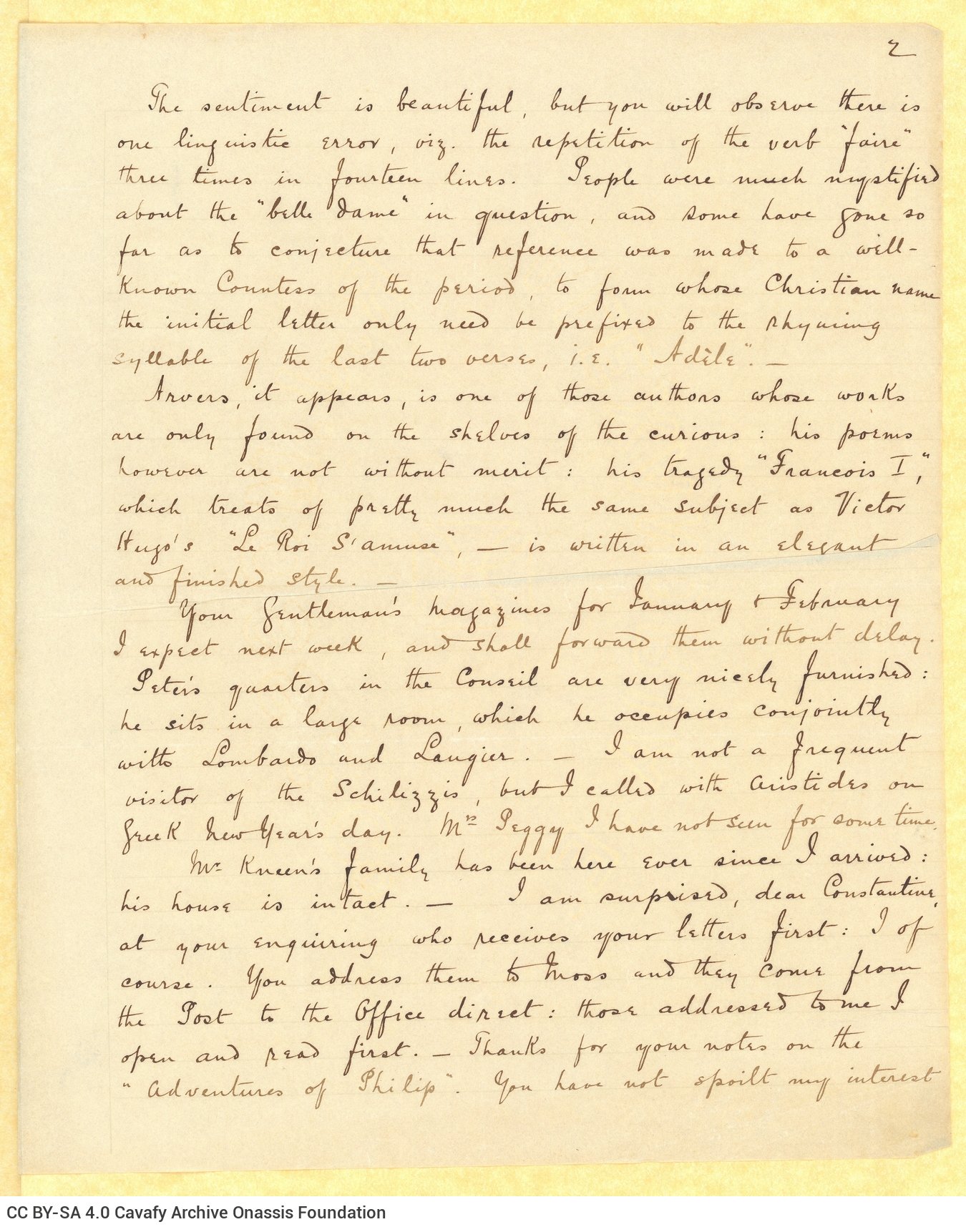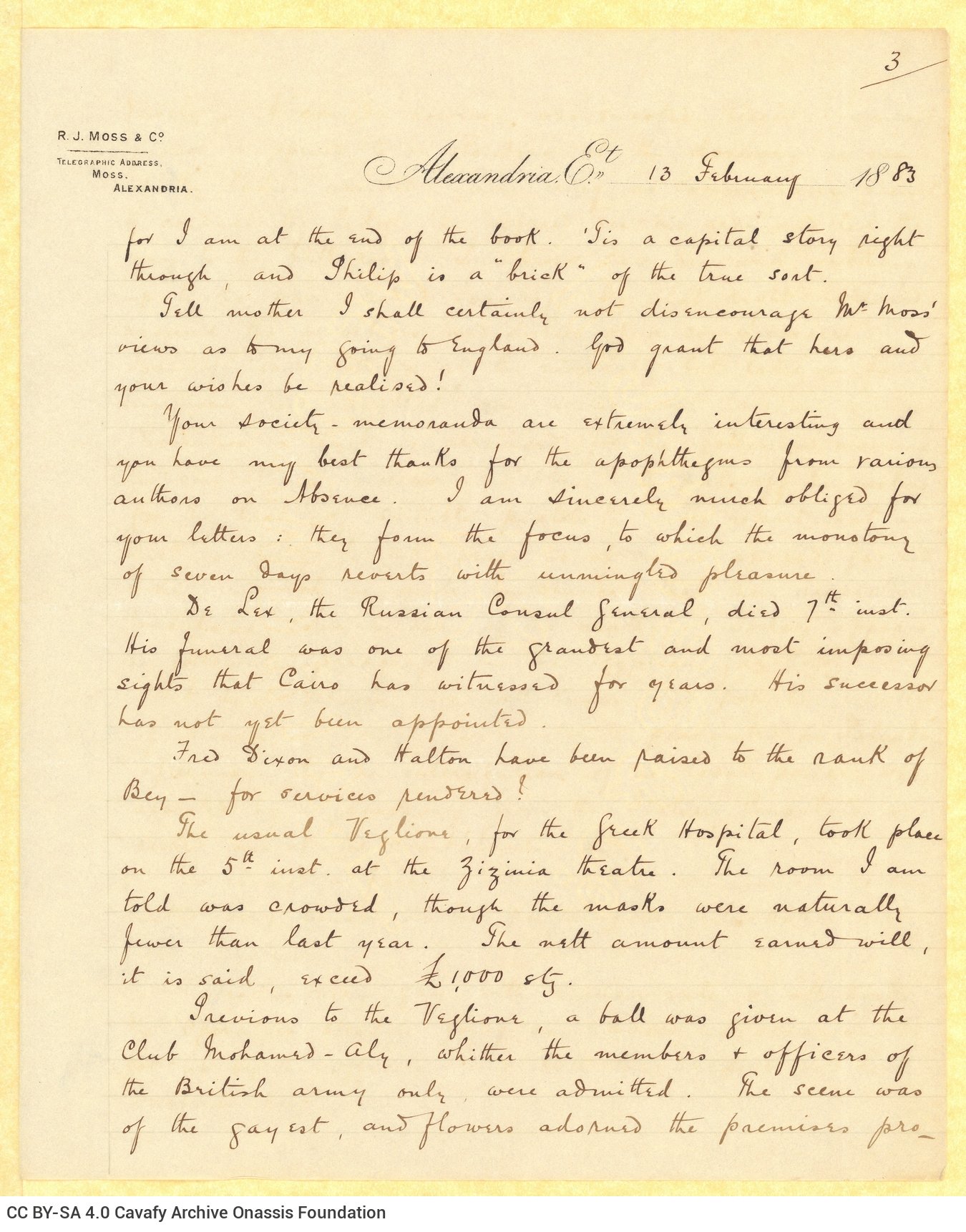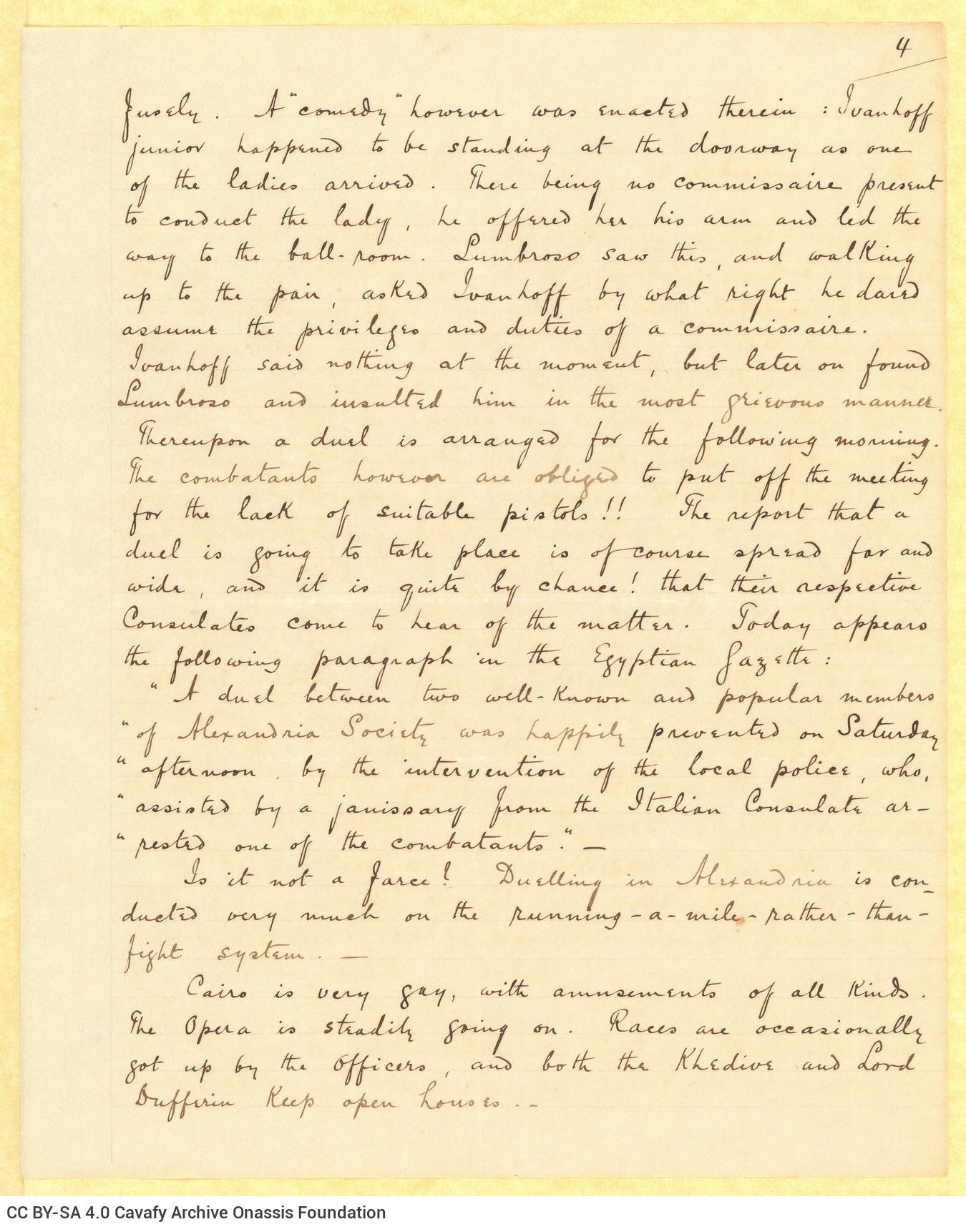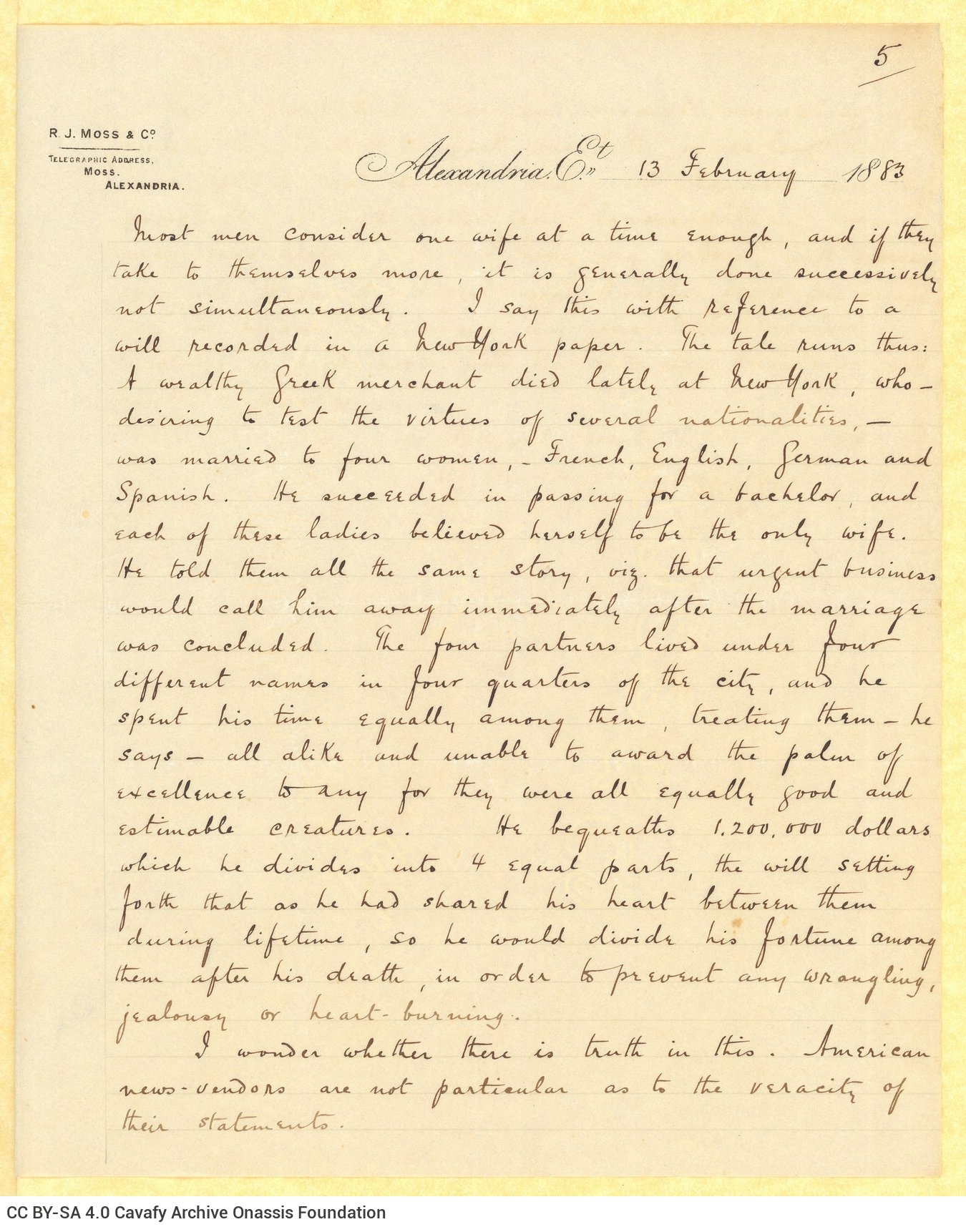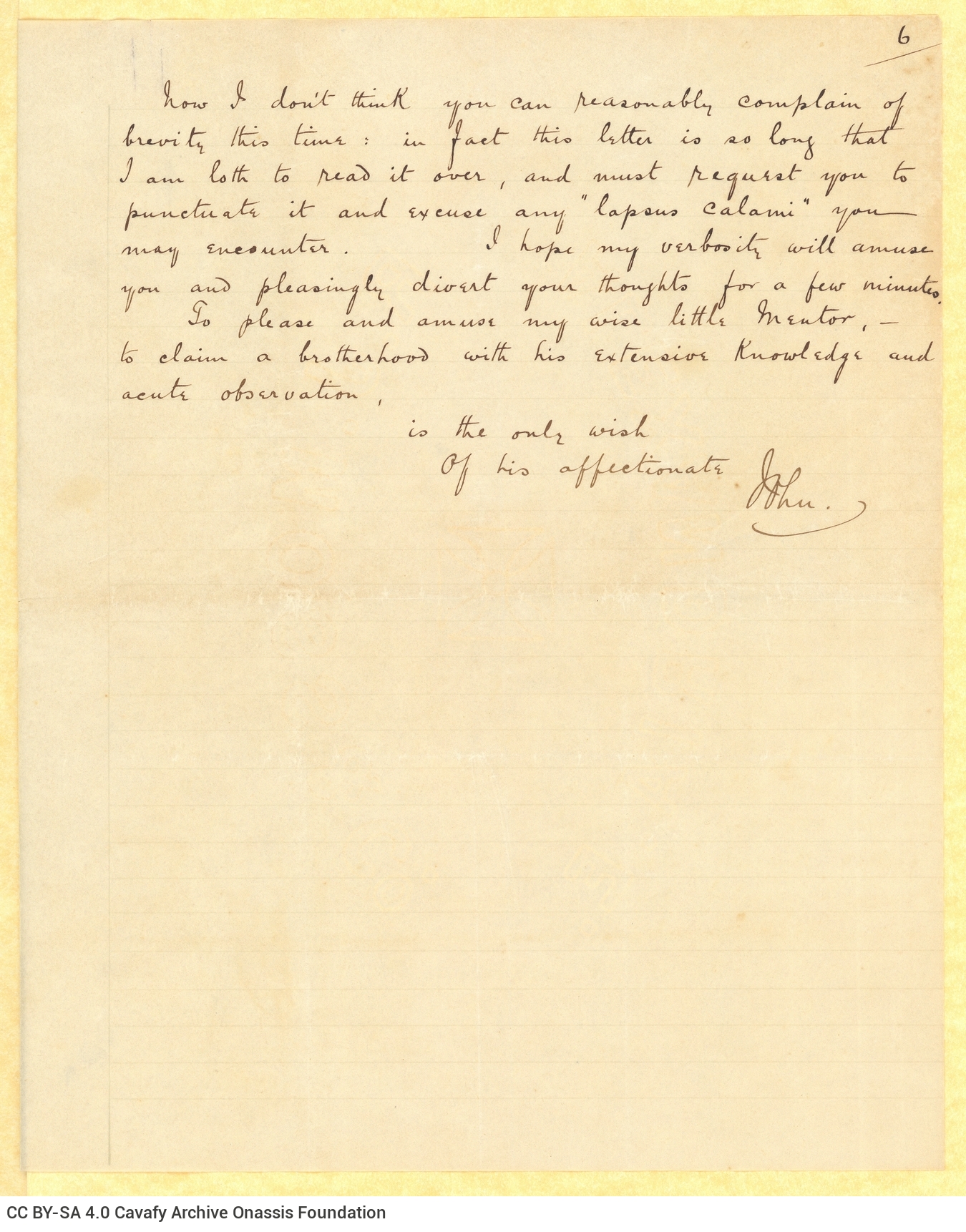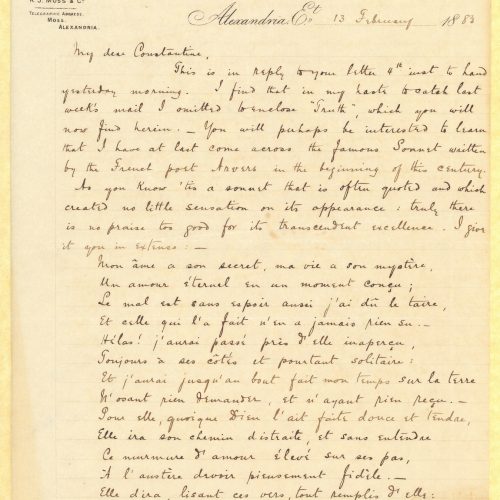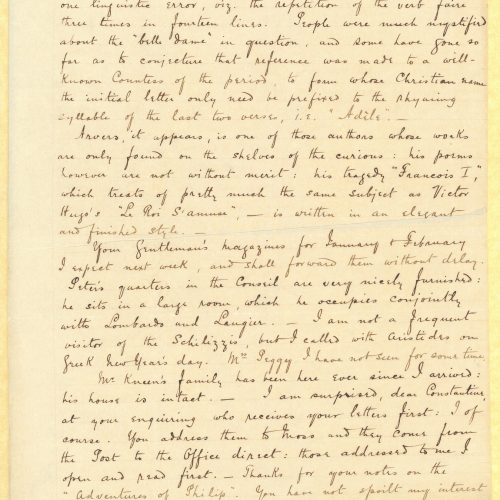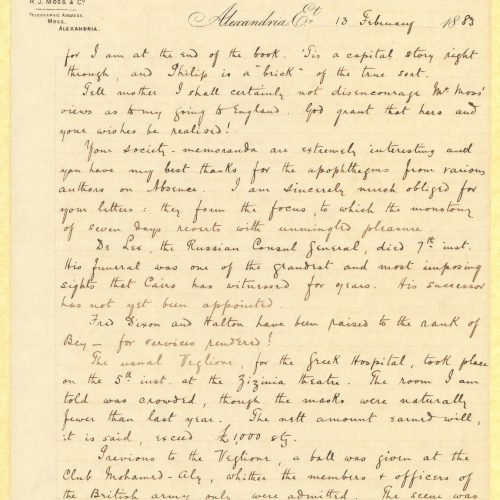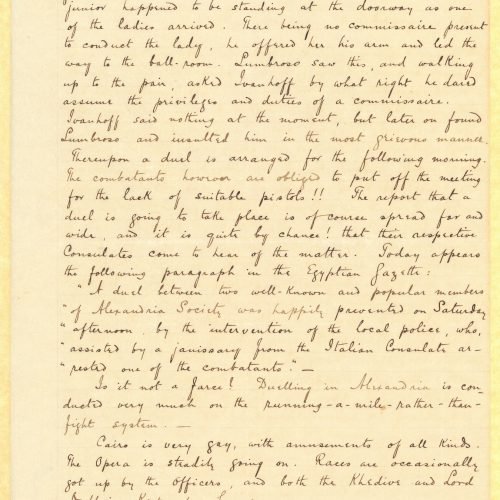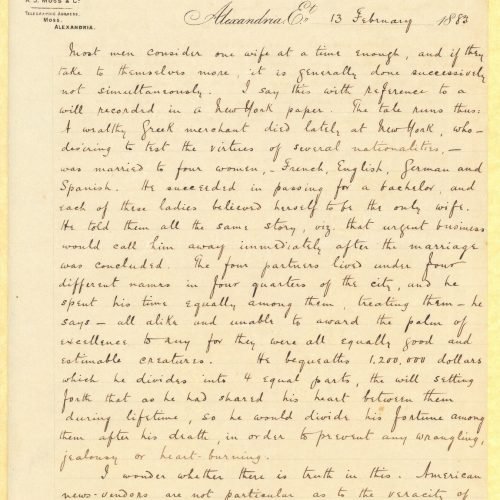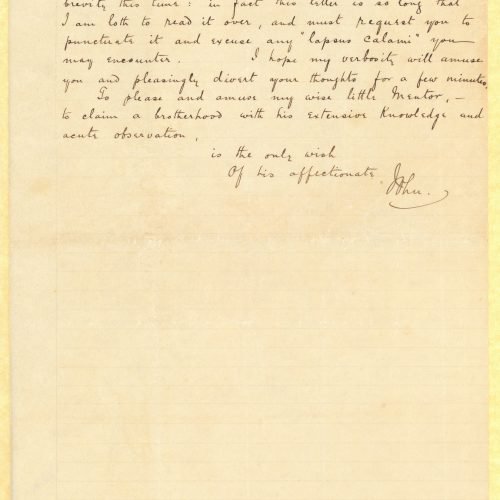υπογράμμιση
υπογράμμιση
πράσινη γραμματοσειρά
κίτρινη γραμματοσειρά
κόκκινη γραμματοσειρά
DIGITAL OBJECT DESCRIPTION
IDENTITY AREA
44 x 27.5 cm
CONTEXT AREA
CONTENT AND STRUCTURE AREA
Handwritten letter by John Cavafy to C. P. Cavafy on the first and third pages of three double sheet letterheads of R. J. Moss & Co., Alexandria. Pages 2-6 are numbered at top right. Excerpt from a sonnet by the French poet Félix Arvers and related comments. Update on the social life in Alexandria and on family matters.
CONDITIONS OF ACCESS AND USE AREA
Mainly English
Writing in ink. Watermark: R. J. Moss & Co Alexandria. Physical item wear: oxidations.
NOTES AREA
The transcription and editing of the letters of John Constantine Cavafy addressed to C. P. Cavafy was first carried out by Katerina Ghika; said transcriptions were subsequently uploaded to the official website of the Cavafy Archive.
Reference to a poem by John Cavafy, entitled “Truth”.
ACCESS POINTS
Cavafy, John Constantine. “Letter by John Cavafy to C. P. Cavafy”. Letter, 13.02.1883. GR-OF CA CA-SF02-S01-SS02-F20-SF001-0016 (391), Onassis Foundation C. P. Cavafy Fonds. From The Digital Collection of the Cavafy Archive, edited by Onassis Foundation, Athens, last modified 01.10.2025. https://doi.org/10.26256/CA-SF02-S01-SS02-F20-SF001-0016.
